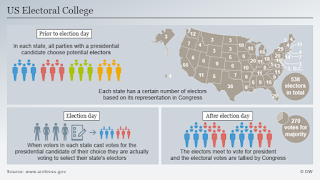LOOKING CLOSER
Her face jumps off the cover of the May 20 issue of Time
Magazine. She’s moving in the polls. Conversations with Democratic voters suggest she’s making a strong impression with detailed policy proposals. The closer we look, the more it seems she’s as prepared as anyone for the Presidency. Massachusetts Senator Elizabeth Warren has that elusive “momentum” every candidate wants.
There is, however, another side of her surge. For every positive accolade she’s drawn because of her proposals and
her compelling, if largely unknown, personal story, there’s been a claim she’s vulnerable if nominated because President Trump will paint her as a socialist. The Time story, for example, begins with a New Hampshire college student who found himself “perplexed” when he learned Warren believes in entrepreneurship and markets, despite the description of her by a U.S. Chamber of Commerce
official as a “threat to free enterprise.” MSNBC’s Joe Scarborough, host of the network’s Morning Joe program, asks if Warren can beat Trump given the chance voters will see her as a socialist. Other commentators, in assigning the 2020 candidates “lanes,” frequently group Warren with self-described Democratic Socialist Senator Bernie Sanders of Vermont.
official as a “threat to free enterprise.” MSNBC’s Joe Scarborough, host of the network’s Morning Joe program, asks if Warren can beat Trump given the chance voters will see her as a socialist. Other commentators, in assigning the 2020 candidates “lanes,” frequently group Warren with self-described Democratic Socialist Senator Bernie Sanders of Vermont.
Is Warren a Socialist?
Answering the question requires deciding a definition of “socialist.” Under the classic explanation offered by political theorists and economists, socialism means a political and economic system in which government controls the means and methods of production and distribution of goods and services. Extensive central planning characterizes such societies. Socialist systems strictly control access to commerce. Government determines who gets what business opportunities. Our review of Warren’s proposals doesn’t show her advancing such ideas. If that’s the socialist test, the former professor flunks.
Some western democracies practice a version of socialism in
which citizens enjoy universal access to health care and other government services. The United States long ago adopted some of these approaches (ever heard of Social Security?), though it limits them in ways other countries don’t. Warren offers numerous suggestions for programs that provide Americans various services at government expense, including maternal health projects, drug abuse prevention and treatment services, and childcare programs.
Other Democratic candidates also support Medicare for All, debt free college, and large-scale drug abuse programs. Republicans, in fact, acknowledge they can’t get rid of Social Security, Medicare, and other social safety-net entitlements. Many don’t want to. Whether those programs constitute socialism isn’t the question anymore. They remain with us, aren’t going anywhere, and will more likely expand than contract.
Why do some label Warren a Socialist?
Those attacking Warren mostly miss her intent. The college student learned correctly Warren supports and encourages Americans in starting new businesses and developing successful enterprises. As a law professor, she taught commercial and business courses like secured transactions,
the process through which lenders secure loans, and commercial paper, the backbone of banking. She knows the system, how it works, and how it’s been perverted. Perhaps her adversaries fear she understands the positive and negative aspects of capitalism and know she sees how unrestrained capitalism injures workers and consumers. Her work in developing the Consumer Financial Protection Bureau suggests just that.
Examining Warren’s proposals reveals she seeks a level playing field for large and small firms and restraint on runaway capitalism by putting up guardrails and safeguards
that reign in excesses in the financial industry like those that caused the 2008 recession. She’d break up big tech and agriculture companies by reinvigorating the anti-trust laws (and perhaps passing new ones). One proposal would make some corporations obtain a charter requiring that they consider the interests of workers and communities, as well as shareholders, in corporate decision-making. Her ideas might improve capitalism, not destroy it, particularly by helping make small businesses more competitive and less at the mercy of mega corporations accountable to no one. She generally abhors monopolies because they destroy competition and artificially increase prices.
The Tax Issue
Warren hasn’t shied away from proposing tax increases that would finance her ideas. She’d charge billionaires a two per cent tax on their wealth -- not their incomes – and use the money for things like the childcare program and the drug treatment initiatives. People in lower income brackets who need childcare and rural Americans embedded in the opioid crisis would benefit most (can you say Trump voters?). Still, the taxes that would pay for those programs probably are part of the reason she gets the socialist tag.
The Senator’s tax ideas are not especially radical and spring from a fundamental principle more and more Americans support – making everyone pay their fair share. As we’ve written, some of our income inequality problem stems from tax code inequities. Wealthy Americans have expanded the gap between them and everyone else by manipulating the tax system. Give and take in the political and legislative processes will determine whether Warren’s proposals represent the best fix. Proposing ideas that level the playing field, make America a more equitable country politically, and economically doesn’t make a candidate a socialist. That label isn’t helpful in assessing the best way for tackling the intractable social and economic difficulties this country faces.
We aren’t endorsing Warren now, though we see merit in
her detailed approach and her proposals. This campaign remains young. We hope all the candidates offer ideas addressing the problems the Senator has tackled with her proposals. Those problems are big enough that the nation can use all the ideas it can get. What do you think? 
























